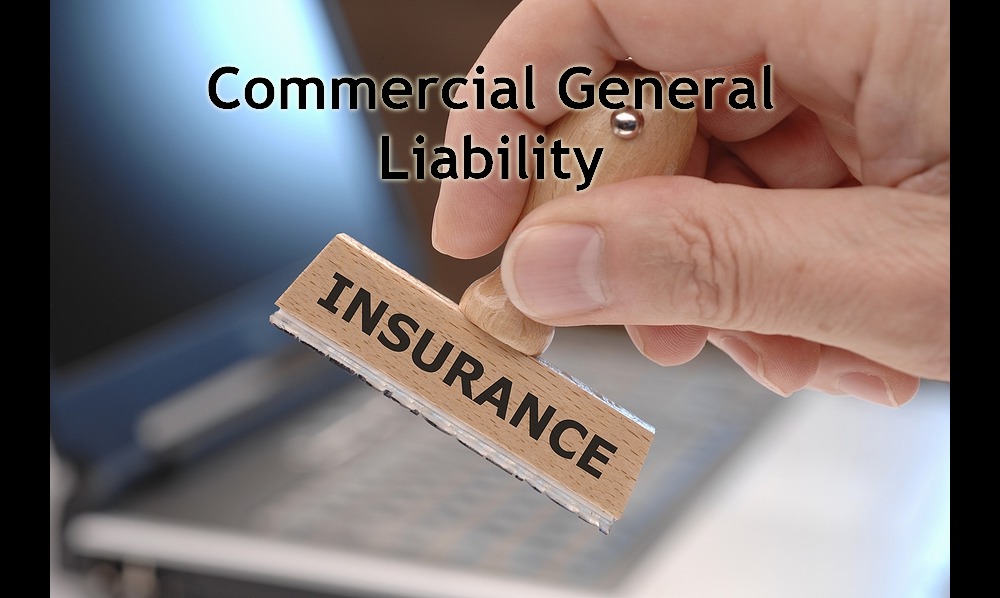Commercial General Liability (CGL) Insurance serves as a safeguard for businesses by offering protection against a variety of common risks and liabilities. It’s designed to cover legal expenses, including settlements and judgments arising from claims of bodily injury, property damage, and personal and advertising injuries. This foundational coverage is crucial for businesses of all sizes, providing a safety net that helps ensure a company’s financial stability in the face of legal challenges. Whether it’s a customer slipping on a wet floor or a claim of false advertising, CGL Insurance plays a pivotal role in protecting businesses from the unpredictable nature of operating in a complex, modern marketplace. Learn more about commercial general liability insurance by EasyCover. They can help you understand your specific business needs and tailor a CGL policy that offers the right level of protection at a competitive price.
What is Commercial General Liability Insurance all about?
Definition of Commercial General Liability Insurance
Commercial General Liability (CGL) Insurance is a type of business insurance policy that is designed to protect companies against financial losses that can arise from liability claims. These claims might stem from various incidents that can occur in the course of business operations, such as accidents on the company’s property, operations conducted offsite, products sold by the business, and advertising conducted by the business. It essentially covers non-professional negligent acts and helps pay for legal defense costs, judgments, and settlements.
Types of coverage provided by CGL
CGL Insurance offers broad protection against several key risks, detailed as follows:
- Property Damage: This coverage protects a business if it’s found legally responsible for damaging someone else’s property. For example, if a contractor accidentally damages a client’s home during renovation, this part of the CGL would cover repair costs.
- Bodily Injury: If someone is injured on the business premises or because of business operations, CGL coverage can pay for medical expenses, lost wages, and legal fees. This includes injuries to customers or visitors.
- Libel, Slander, and False Advertising: Also known as personal and advertising injuries, this coverage protects businesses against claims of defamation (libel and slander) or misleading advertising that injures another business or person’s reputation or rights.
- Personal Injury: Beyond physical injuries, CGL extends to other forms of personal injury such as false arrest, malicious prosecution, the wrongful eviction, and invasion of privacy.
These facets of CGL Insurance underscore its importance as a protective measure for businesses, guarding them against a wide range of potential liabilities.
Why Every Business Needs CGL Insurance
Protecting against the unforeseen
In the business world, unexpected incidents can occur, leading to significant financial impacts. CGL Insurance serves as a vital safety net, offering financial security for businesses to navigate such challenges and continue operations without fear of unforeseen liabilities.
The financial impact of lawsuits on small businesses
For small businesses, a lawsuit’s financial toll can be crushing. Legal expenses can spiral, surpassing reserves and leading to bankruptcy. CGL Insurance provides a safety net, shielding small businesses from unforeseen costs, ensuring their survival.
Real-life examples of CGL in action
Consider a small cafe that faced a lawsuit after a customer slipped and got hurt on the premises. With their CGL policy, the cafe managed to handle medical expenses and settlements comfortably. In another instance, a marketing firm accused of false advertising was supported by their CGL insurance for legal defense and settlements, enabling them to operate without excessive legal costs. These examples emphasize the vital role of CGL Insurance in safeguarding businesses, ensuring their survival despite legal challenges.
The Scope of Coverage
Detailed Examination of What CGL Covers
Commercial General Liability (CGL) Insurance is a comprehensive policy designed to shield businesses from a myriad of potential liabilities. Its coverage spans across various domains, ensuring that businesses have a robust defense against the financial distress that lawsuits can bring.
Examples of Property Damage and Bodily Injury Claims
Property damage claims can result from incidents like a construction company damaging a neighboring property during work. Bodily injury claims may happen if a customer slips and falls in a store, needing medical treatment. CGL Insurance covers repair costs for property damage and medical expenses for bodily injuries.
How CGL Protects Against Claims of Libel and Slander
In today’s digital world, a comment made online about another business or individual can quickly escalate into a lawsuit for libel or slander. CGL insurance provides protection in these cases, covering legal fees and settlements that result from such defamation claims.
Coverage for False Advertising Claims
False advertising claims are another area where CGL Insurance proves invaluable. If a business is accused of misleading consumers through its advertising practices, CGL can cover the legal costs and any settlements or judgments, safeguarding the business’s financial health.
Limitations and Exclusions of CGL Insurance
While CGL offers broad protection, it does not cover all risks. Exclusions often include employee injuries (covered by Workers’ Compensation Insurance), professional mistakes (covered by Professional Liability Insurance), and intentional acts of wrongdoing among others. Understanding these limitations is crucial for businesses to ensure they are fully protected by additional policies where necessary.
This detailed breakdown of the scope of coverage under CGL Insurance illustrates its critical role in a comprehensive business risk management strategy.
How to Choose the Right CGL Policy for Your Business
Selecting the appropriate Commercial General Liability (CGL) Insurance policy is a critical decision for any business. It involves a careful consideration of various factors to ensure the chosen policy provides comprehensive protection against potential liabilities. Here are some pivotal aspects to consider:
Industry-specific Risks
Different industries face different types of risks. A construction company, for instance, has higher risks of property damage and bodily injury on the job site, whereas a tech company might be more concerned with libel or slander claims due to online content. Understanding the specific risks associated with your industry can help you choose a policy that adequately covers these potential liabilities.
Coverage Limits
The amount of coverage is another essential factor. This refers to the maximum amount the insurance company will pay under the policy. Businesses should evaluate the potential size of claims they could face and select coverage limits that would protect them adequately. Keep in mind that higher coverage limits generally result in higher premiums.
Policy Exclusions
Every CGL policy has exclusions that specify what is not covered. It’s crucial to review these exclusions carefully to understand the limitations of your policy. If there are significant risks that are excluded from a standard CGL policy, you might need to consider additional coverages, such as professional liability insurance or cyber liability insurance.
Tips for Working with an Insurance Broker or Agent
Working with a knowledgeable insurance broker or agent can greatly simplify the process of selecting the right CGL policy. Here are a few tips:
- Communicate Clearly: Be upfront about your business’s operations, the risks you face, and your financial constraints. This will help your broker or agent recommend the most suitable policies.
- Ask Questions: Don’t hesitate to ask questions about policy terms, conditions, and exclusions. Understanding these details is essential in evaluating how well a policy meets your needs.
- Compare Quotes: Obtain quotes from multiple insurers to compare coverage options and premiums. An insurance broker can be invaluable here, as they can source quotes from various companies on your behalf.
- Check the Insurer’s Reputation: Before finalizing a policy, research the insurer’s financial stability and customer service reputation. This will give you confidence that the company can pay claims and provide support when needed.
Choosing the right CGL policy is not a one-size-fits-all proposition. It requires a thoughtful analysis of your business’s specific needs, risks, and financial situation. By considering the factors mentioned above and seeking professional advice, you can select a policy that offers robust protection for your business against a wide range of liabilities.
Navigating Claims with CGL Insurance
When a claim is made against a business, it’s crucial to understand how to effectively manage the situation under the protection of a Commercial General Liability (CGL) Insurance policy. Here’s an overview to guide businesses through the claims process, outline the types of claims typically covered, and share best practices for handling claims.
Overview of the Claims Process for General Liability Insurance
The claims process typically begins when an incident occurs that could potentially lead to a claim against your business. Immediate steps include:
- Notification: Inform your insurance provider about the incident as soon as possible, even if a claim hasn’t been formally made yet. Prompt reporting is often required and helps with the swift handling of the claim.
- Documentation: Gather all relevant information and documentation related to the incident, including photos, witness statements, and any contracts or records.
- Cooperation: Work closely with your insurance provider throughout the process. They may require additional information or assistance in investigating the claim.
Types of Claims Commonly Covered Under CGL Policies
CGL policies typically cover a wide array of claims, including but not limited to:
- Bodily Injury: Claims made by people who suffer physical injury on your business premises or due to your operations.
- Property Damage: Claims for damage to someone else’s property caused by your business activities.
- Personal and Advertising Injury: Claims of libel, slander, defamation, or infringement of copyright in your advertisements.
Best Practices for Businesses When Facing a Claim
Handling a claim effectively can mitigate the potential impact on your business. Here are some best practices:
- Act Quickly: Delaying the reporting of an incident or claim can complicate the process and may even lead to denial of the claim.
- Be Honest and Transparent: Provide accurate and comprehensive information to your insurer. Concealing facts can invalidate your coverage.
- Review Your Coverage: Understand the extent of your policy’s coverage and exclusions to set realistic expectations about the claims process.
- Seek Legal Advice: For complex claims, particularly those involving severe injuries or significant property damage, it may be wise to consult with an attorney who can help protect your interests.
- Follow the Insurer’s Guidance: Your insurer’s claims department has the experience and resources to manage claims efficiently. Following their instructions can help expedite the process.
- Maintain Records: Keep detailed records of all correspondence, notifications, and actions taken in relation to the claim. This documentation can be invaluable in resolving disputes.
Navigating a claim under CGL Insurance requires a clear understanding of your policy, a systematic approach to reporting and documentation, and cooperation with your insurance provider. By following these guidelines, businesses can manage claims more effectively, minimizing potential disruptions and financial impacts.
Conclusion
Choosing and managing a Commercial General Liability (CGL) Insurance policy is a critical part of safeguarding the financial health and operational stability of any business. From selecting the right coverage limits and understanding policy exclusions to efficiently navigating the claims process, each step requires careful consideration and due diligence. By working closely with a knowledgeable insurance broker or agent, businesses can ensure they select a policy that aligns with their unique needs and risks. Additionally, following best practices for handling claims not only streamlines the process but also helps in mitigating potential impacts on the business. Ultimately, a well-chosen CGL policy, complemented by a proactive approach to risk management, is indispensable in protecting a business against a wide array of liabilities.




